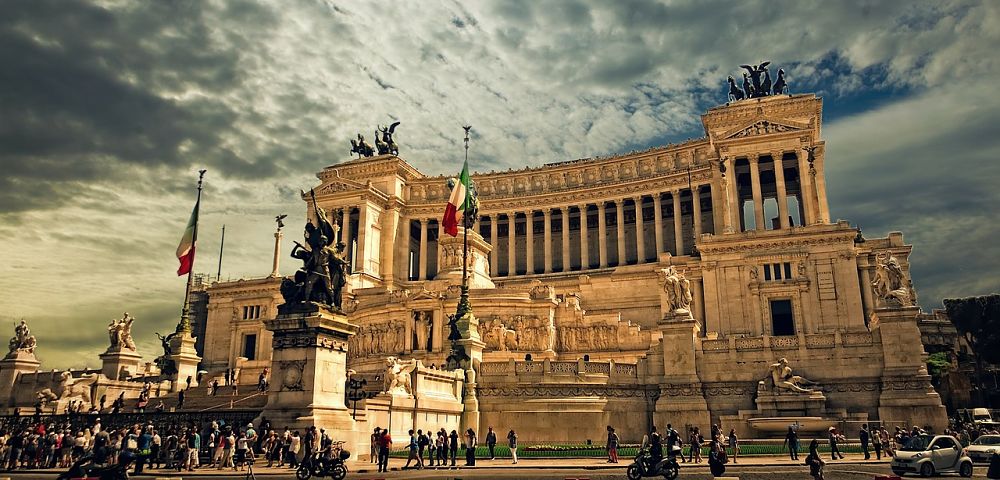Italy’s Proposed Parallel Currency Is the Biggest Threat to the Eurozone
I think the global economy is nearing what I call “The Great Reset.”
My thesis is that over the next decade we will endure increasingly damaging debt crises that culminate in a coordinated global default.
There are limits in how much leverage the world can handle, and I think we are already beyond them. And that is before we have a global recession. The only question now is how we will manage the collapse.
I previously quoted former BIS Chief Economist William White on how this will all unfold. Here’s his key point again.
… the trigger for a crisis could be anything if the system as a whole is unstable. Moreover, the size of the trigger event need not bear any relation to the systemic outcome. The lesson is that policymakers should be focused less on identifying potential triggers than on identifying signs of potential instability.
Bill says the financial system is so fragile that practically anything could trigger a crisis. Better to watch for signs of potential instability. And one of the hot spots today is Italy.
Parallel Currency
Italy’s new government, an unexpected coalition between two populist parties, could blow up the fragile trust that keeps Europe together. And the leading parties may even be planning for it.
The discussions between Lega Nord and Five Star included an idea called the “mini-BOT” that would effectively serve as a parallel currency.
The BOT is Italy’s Treasury bill, and as in the US, it serves as a kind of cash equivalent in electronic trading. The mini-BOT would be a government debt instrument, in paper form, that pays zero interest and never matures.
The government would use it to pay social benefits and accept it for tax payments. Private businesses would not be required to accept it, but they could.
Private businesses and individuals would also, in theory, buy the mini-BOT as a way to pay their taxes. But they would buy them at a discount. So, traders would immediately set up an arbitrage where the person getting the social benefits payment could sell them for euros for, call it, a 5% or 10% haircut.
Former Prime Minister Silvio Berlusconi, who is still a force in Italy, insists this would be legal. The Northern League sees a way to ease the transition out of the euro and the Five-Star Movement sees a way to increase spending without having to take on euro debt.
And since the new coalition government wants to increase the deficit an additional $180 billion euros or so through a combination of tax cuts and increased spending, this is being seriously proposed.
The mini-BOT probably could be a practical alternative to the euro for many transactions. From what I’ve read, the other eurozone countries would have difficulty stopping it because the euro would still be the only formal “currency.”
And other Mediterranean countries would watch this experiment and begin moving in the same direction themselves.
Italy’s Bargaining Chip
You see where this goes. Italy might be able to use mini-BOTs (or let’s be honest and call them the new lira) to finance deficit spending without breaking eurozone rules.
This could ultimately debase the euro and blow apart the eurozone. Germany would have to leave. From there, you can draw your own map.
Is this what the Italian populists want? Some of them, yes, but I suspect their leaders know not to go too far. More likely, they see it as a bargaining chip—a plausible threat they can use to extract concessions from the ECB and other eurozone leaders.
The Greeks threatened something similar in 2015 and it didn’t work. I think Italy has a stronger hand.
But it gets scarier when you think about how this could happen. If Italy’s new government decides to launch a parallel currency, they will probably do it with no warning at all. Tipping their hand would spark capital flight and reduce the benefits.
We could literally wake up one morning to learn the lira (or something like it) is back and Germany is leaving the eurozone. Imagine how markets would react.
I think this scenario is unlikely, but it points to something else. As the coming debt crisis matures, national leaders and central bankers will find their choices narrowing. I’m constantly amazed at their creativity, but it has limits.
They can’t kick the can down the road forever. At some point, the road ends and then they have to choose. When your only choices are “impossible” and “terrible,” then you pick the latter.
We are going to see previously unthinkable ideas be seriously considered, and sometimes chosen, because all other options are even worse.
Join hundreds of thousands of other readers of Thoughts from the Frontline
Sharp macroeconomic analysis, big market calls, and shrewd predictions are all in a week’s work for visionary thinker and acclaimed financial expert John Mauldin. Since 2001, investors have turned to his Thoughts from the Frontline to be informed about what’s really going on in the economy. Join hundreds of thousands of readers, and get it free in your inbox every week.




